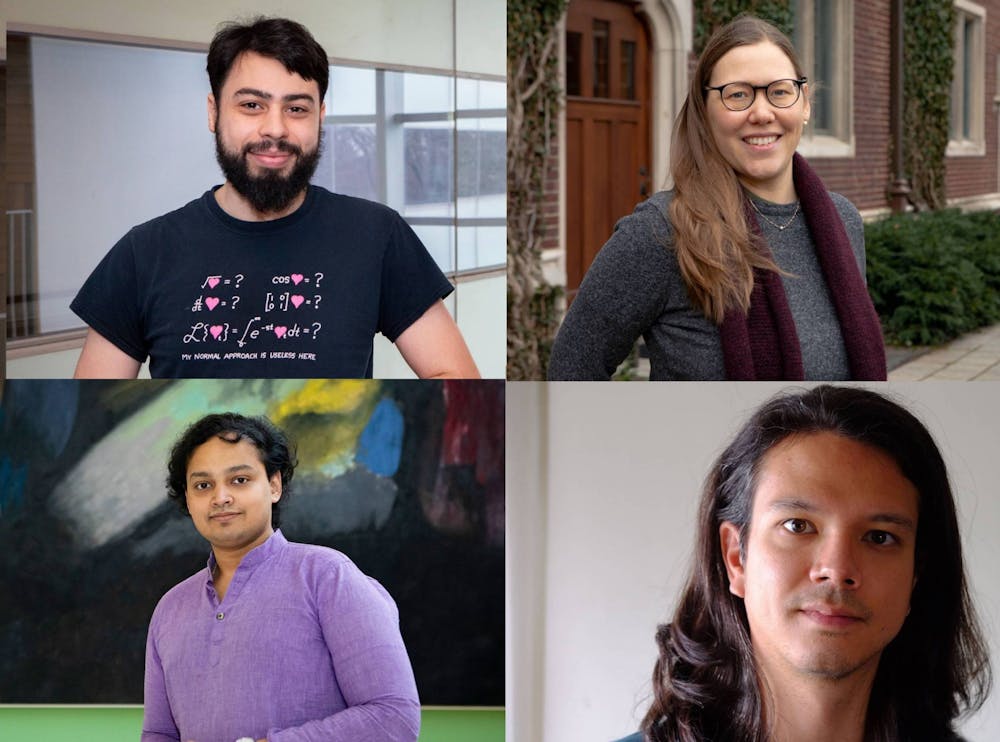On Feb. 13, graduate students Vinicius de Aguiar Furuie, Talmo Pereira, Karan Singh, and Raissa von Doetinchem de Rande were named winners of the Jacobus Fellowship, the highest graduate student honor awarded each year by the University.
Established in 1905 in memory of Porter Ogden Jacobus, the award acknowledges “the highest scholarly excellence” in four distinct fields — the natural sciences, social sciences, humanities, and engineering — and supports graduate students in their final year of study.
Furuie, who attended the University of São Paulo as an undergraduate, wrote his dissertation on the “Argonauts of the Amazon.” According to the University statement, his anthropological research focuses on “regatõe” river traders and brings to light autochthonous knowledge of the “threatened region” of the Amazon rainforest.
In a statement to the University, João Biehl, the Susan Dod Brown Professor of Anthropology, praised Furuie’s ability to weave ethnography and “brilliant” theory into “luminous” writing. Furuie’s trailblazing fieldwork was supported by a Wenner-Gren Foundation Grant, and his research has been recognized by Princeton-Brazil Global Health Research, the Walbridge Fund Graduate Award for Environmental Research, and the Mary and Randall Hack ’69 Graduate Award.
Pereira, a doctoral candidate in neuroscience, was awarded the fellowship for his research on utilizing “machine learning, computer vision, statistical physics, and probabilistic modeling” to model animal behavior. According to the University statement, Periera sees his dissertation as a foundation for “quantitative behavior-driven neuroscience, including new avenues for diagnosis of human psychiatric disease.”
With support from the Princeton Intellectual Property Accelerator Fund, Pereira developed a groundbreaking artificial intelligence framework to track the individual body parts of animals. Mala Murthy, a professor of neuroscience, praised Pereira’s work for leveraging “novel solutions” to track animal behavior in a statement to the University.
“There’s almost nothing like it,” Murthy said.
Computer science student Singh was awarded for his dissertation on refining learning algorithms. An alumnus of the Indian Institute of Technology, Kanpur, Singh’s Ph.D. work provided the foundation of a new “sub-discipline” in computer science called “non-stochastic control,” according to Elad Hazan, professor in computer science, in the University statement.
Singh’s research on “learning algorithms” has previously been awarded the SEAS Award for Excellence, the Spotlight Prize, and the ICML 2017 Travel Award.
Oxford and Yale alumnus von Doetinchem de Rande was recognized for her research on the “Qur’anic concept of fiṭra,” or someone’s intrinsic being. According to von Doetinchem de Rande, her work builds a bridge between the intellectual traditions of Europe and the Islamic world.
“Von Doetinchem de Rande is the first religion student to fuse two subfields of ‘Islam’ and ‘Religion, Ethics, and Politics,’” read the University statement. She has previously earned awards from the Class of 1905 Fellowship Fund, the Center for the Study of Religion, and the Department of Near Eastern Studies.
All of this year’s fellows will pursue careers in academia, the University statement notes. According to the Graduate School’s website, “previous Jacobus winners have gone on to become leaders in all fields including academia, business, industry, and government.”

Furuie, Pereira, Singh, and von Doetinchem de Rande did not respond to multiple requests for comment from The Daily Princetonian.








